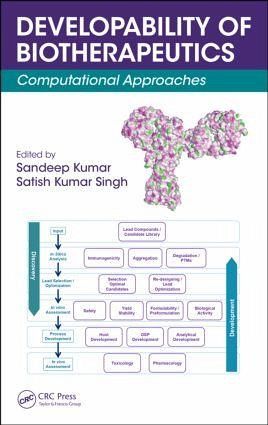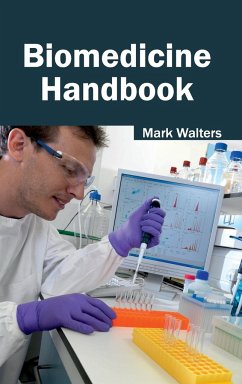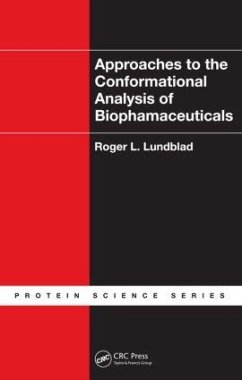
Developability of Biotherapeutics
Computational Approaches
Herausgeber: Kumar, Sandeep; Kumar Singh, Satish
Versandkostenfrei!
Versandfertig in 1-2 Wochen
187,99 €
inkl. MwSt.

PAYBACK Punkte
94 °P sammeln!
Biopharmaceuticals are emerging as frontline medicines to combat several life-threatening and chronic diseases. However, such medicines are expensive to develop and produce on a commercial scale, contributing to rising healthcare costs. Developability of Biotherapeutics: Computational Approaches describes applications of computational and molecular modeling techniques that improve the overall process of discovery and development by removing empiricism. The concept of developability involves making rational choices at the pre-clinical stages of biopharmaceutical drug development that could posi...
Biopharmaceuticals are emerging as frontline medicines to combat several life-threatening and chronic diseases. However, such medicines are expensive to develop and produce on a commercial scale, contributing to rising healthcare costs. Developability of Biotherapeutics: Computational Approaches describes applications of computational and molecular modeling techniques that improve the overall process of discovery and development by removing empiricism. The concept of developability involves making rational choices at the pre-clinical stages of biopharmaceutical drug development that could positively impact clinical outcomes. The book also addresses a general lack of awareness of the many different contributions that computation can make to biopharmaceutical drug development. This informative and practical reference is a valuable resource for professionals engaged in industrial research and development, scientists working with regulatory agencies, and pharmacy, medicine, and life science students and educators. It focuses primarily on the developability of monoclonal antibody candidates, but the principles described can also be extended to other modalities such as recombinant proteins, fusion proteins, antibody drug conjugates and vaccines. The book is organized into two sections. The first discusses principles and applications of computational approaches toward discovering and developing biopharmaceutical drugs. The second presents best practices in developability assessments of early-stage biopharmaceutical drug candidates. In addition to raising awareness of the promise of computational research, this book also discusses solutions required to improve the success rate of translating biologic drug candidates into products available in the clinic. As such, it is a rich source of information on current principles and practices as well as a starting point for finding innovative applications of computation towards biopharmaceutical drug development.














